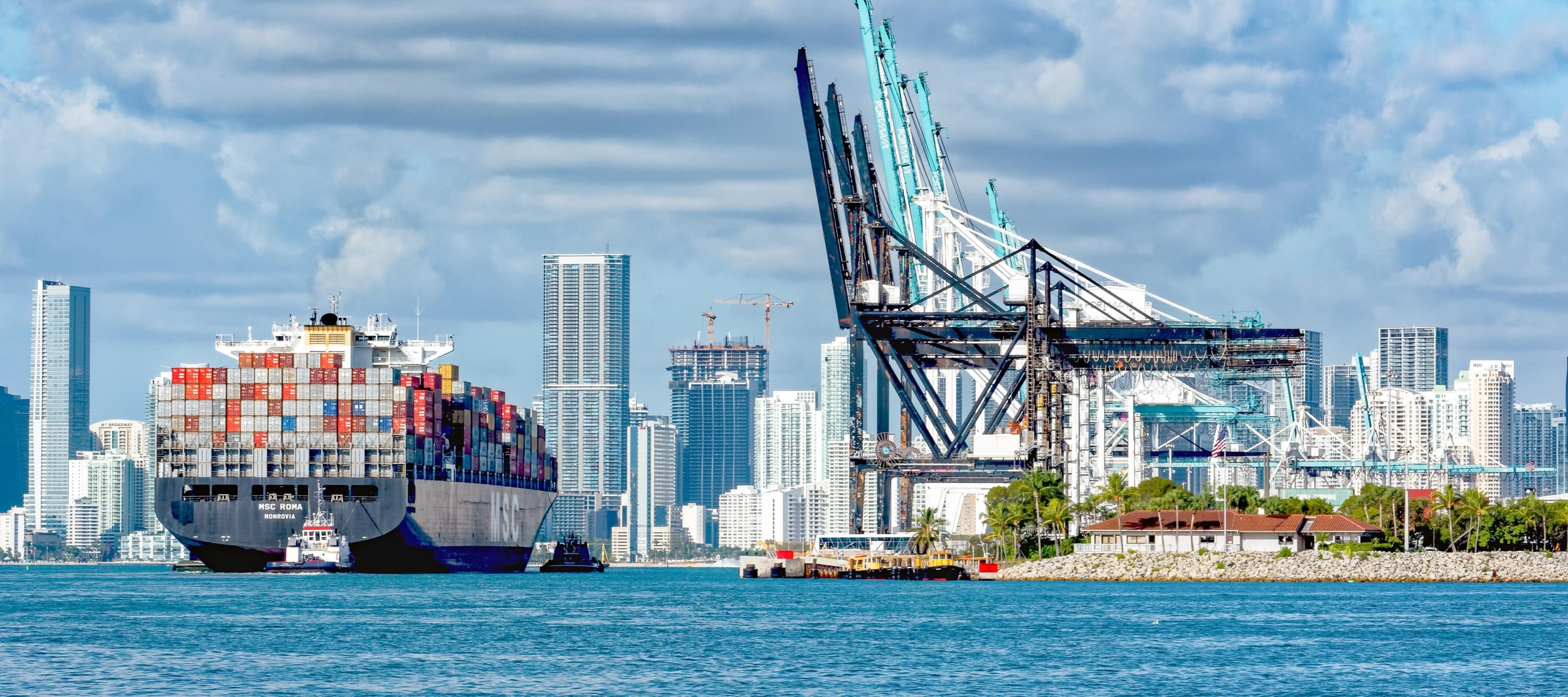Shipping
Promoting respect for human rights in the transportation of commodities and other goods.

Summary
- Human rights issues arise across the entire lifecycle of a ship – from design, finance and ordering, through building and operation, to breaking/recycling.
- Current focus of IHRB’s shipping work is on the rights of seafarers (on bulk carriers, tankers and container ships) and shipyard workers.
- IHRB shipping outputs and initiatives fall under the banner of the Ocean and Human Rights Platform, a joint initiative with the Rafto Foundation for Human Rights.
- This work is closely linked to our commodity trading work.
Background
Shipping is the backbone of the global economy, with up to 90% of the world’s trade by volume being transported by sea. There is an urgent need to tackle the systemic challenges creating human rights risks, including labour rights risks, for seafarers and shipyard workers worldwide. Seafarers and shipyard workers have a right to a workplace where their rights are respected, that is safe and secure, where they have fair terms of employment that are delivered through decent living and working conditions, fair wages and social protection covering medical, employment and retirement issues.
Project aims and outcomes
- Improve respect for seafarers’ rights across the board.
- Enable human rights due diligence by shipping customers.
- Eradicate the illegal charging of recruitment fees among seafarers.
- Address issues around shipyard workers who build and maintain merchant vessels and dockworkers who load and unload cargo.
- Embed a human rights approach in day-to-day port operations and expansion plans.
Who might this interest?
- Shipowners and operators who wish to ensure human rights are respected on their vessels, in shipyards where their vessels are built and maintained, and at ports where their ships load and unload cargo.
- Charterers and container cargo owners whose cargo is ensured safe passage by the 1.8 million seafarers who transport their goods across seas and oceans.
- Governments whose economies have a stake in seafaring and/or merchant shipping.
- Seafarers and seafarer organisations who wish to learn about or become involved in our work.
- Port and terminal owners whose operations affect workers and communities.
Project activities
- Seafarers’ rights Code of Conduct: A human rights code of conduct for charterers developed in partnership with the Sustainable Shipping Initiative (SSI), and in collaboration with Rafto; alongside a self-assessment questionnaire for shipowners and operators to gauge their performance and encourage year on year improvement. Accompanied by an annual progress report.
- Seafarers and Recruitment fees: Researching the extent and impact of recruitment fees among seafarers. Includes Seafarers and Illegal Recruitment Fees: 2024 Insights; and Seafarers and Recruitment Fees Research Briefing 2023, published in partnership with SSI and TURTLE, which found that the illegal charging of ‘recruitment fees’ is widespread and endemic. Combined, this series of research has surveyed more than 7000 seafarers.
- Responsible Shipping Dialogue: A working group including global brands, shipowners and operators, and seafarers’ representatives, aiming to provide guidance for container cargo owners on ensuring human rights due diligence in their shipping activities (for more information please contact Francesca Fairbairn).
- Shipyards: The issues faced by shipyard workers are covered in our annual SEAFAIRER Roundtables, held in partnership with the Sustainable Shipping Initiative, the Rafto Foundation for Human Rights and the Norwegian Embassy in Singapore. In 2019 and 2023, industry representatives discussed shipyard worker rights. The topic will be covered again at our next SEAFAIRER Roundtable in October 2024.
- Human Rights in the Ship Lifecycle: A topic briefing outlining human rights impacts and best practice steps for companies involved in any stage across a ship’s lifecycle, from design through to scrapping.
- Ports: IHRB has produced several publications, including a topic briefing, and two reports with the Built Environment Programme: Advancing Human Rights in the Built Environment in Cartagena, and Human Rights in Cartagena de Indias’ Port and Tourism Sectors. (There is also a topic briefing on Ocean Tourism.)
- Working Collectively to Eliminate Seafarer Recruitment Fees: IHRB has launched a two-year initiative to promote responsible recruitment of seafarers, with funding from the TK Foundation, The Seafarers’ Charity, and the ITF Seafarers’ Trust.
Resources
Team
Meet our Oceans team and learn about their expertise.








